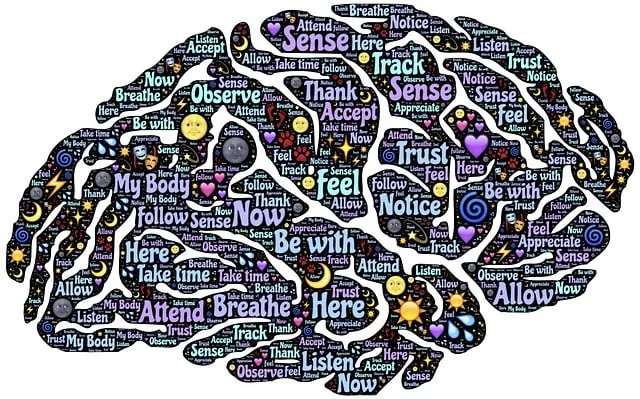Centennial Kaiser offers robust mental health services with a multi-faceted risk management approach, addressing diverse client needs from acute crises to chronic conditions. They prioritize comprehensive assessments, continuous monitoring, and personalized interventions, including Stress Management Workshops for professionals. Their strategy focuses on mood management, anxiety relief, and depression prevention through holistic care practices. By combining thorough risk assessment, crisis intervention guidance, and emotional healing processes, Centennial Kaiser fosters a supportive environment where both staff and clients can thrive.
“In the realm of mental healthcare, risk management is an indispensable practice. This comprehensive guide explores the intricate process of crafting robust risk management plans tailored to mental health professionals. We delve into the unique challenges within this sector, drawing insights from Kaiser’s acclaimed approach.
Understanding risk factors is pivotal, especially in light of Centennial’s growing focus on accessible mental health services. This article navigates essential components for plan development and offers strategies to foster a culture of continuous improvement and staff resilience.”
- Understanding Risk in Mental Health Practice
- Kaiser's Approach to Mental Health Risk Management
- Essential Components of a Comprehensive Plan
- Strategies for Continuous Improvement and Staff Support
Understanding Risk in Mental Health Practice

In the realm of mental health services, understanding risk is paramount, especially for professionals navigating complex client scenarios. The Centennial Kaiser organization recognizes that each patient presents unique challenges and potential hazards, from acute crises to chronic conditions. Effective risk management planning involves a multifaceted approach, encompassing comprehensive assessments, ongoing monitoring, and proactive interventions tailored to individual needs.
Professionals within the mental health field must be adept at identifying and mitigating risks through robust communication strategies. Stress Management Workshops organized by Kaiser play a vital role in empowering practitioners with tools to handle stress, ensuring they can provide consistent, empathetic care. Furthermore, fostering inner strength development among staff enables them to support clients more effectively while maintaining their well-being.
Kaiser's Approach to Mental Health Risk Management

Centennial, like many modern healthcare providers, recognizes the critical importance of risk management in mental health services. Kaiser, a prominent healthcare network, has developed a comprehensive approach to address this need. Their strategy involves a multi-faceted approach that includes robust screening processes, early intervention programs, and continuous monitoring of patient outcomes. By integrating these practices, Kaiser aims to create a supportive environment that not only promotes healing but also facilitates effective mood management and anxiety relief.
Furthermore, Kaiser’s risk management plan emphasizes the prevention of depression, recognizing its profound impact on overall well-being. This proactive stance involves regular assessments, tailored interventions, and access to specialized services. Such initiatives ensure that mental health professionals can address potential risks promptly, fostering a more holistic and effective care experience for their patients.
Essential Components of a Comprehensive Plan

A comprehensive risk management plan for mental health professionals is a multifaceted strategy designed to safeguard both practitioners and their clients. It begins with a thorough assessment of potential risks, encompassing everything from workplace stress and burnout to specific client populations requiring specialized care. At its core, such a plan should include Crisis Intervention Guidance, outlining protocols for handling acute situations, ensuring swift and effective support.
Beyond immediate crisis management, effective risk mitigation includes integrating Emotional Healing Processes that promote resilience and well-being among professionals. This involves regular training in stress management techniques, mindfulness practices, and mood management strategies tailored to the unique challenges faced by mental health workers. Centennial and Kaiser, with their robust mental health services, offer valuable resources for developing such programs, fostering a supportive environment where emotional healing can thrive.
Strategies for Continuous Improvement and Staff Support

Continuous improvement is a cornerstone of effective risk management for mental health professionals. Implementing robust Emotional Healing Processes and integrating them into the culture fosters a supportive environment, enhancing staff resilience against burnout. Regular reviews of existing practices and patient feedback can reveal areas for enhancement, ensuring that services remain up-to-date and aligned with best practices, like those offered at Kaiser by Centennial.
Investing in Mental Health Education Programs Design tailored to the unique needs of your team is another powerful strategy. These programs can equip staff with advanced skills and knowledge, empowering them to better navigate complex patient cases. By prioritizing staff support and mental health education, healthcare organizations can create a sustainable system that not only minimizes risks but also promotes holistic Emotional Healing Processes for both patients and professionals alike.
Centennial Kaiser has recognized the critical importance of mental health services, integrating comprehensive risk management planning into their practice. By understanding the unique risks within this field, Kaiser’s approach ensures a safe and supportive environment for both patients and staff. Through essential components like policy development, staff training, and incident reporting, they’ve created a robust framework. Additionally, continuous improvement strategies and staff support foster an adaptive culture, enabling them to navigate evolving challenges. This holistic method demonstrates Kaiser’s commitment to excellence in mental health care, prioritizing risk management as a cornerstone of their services.






